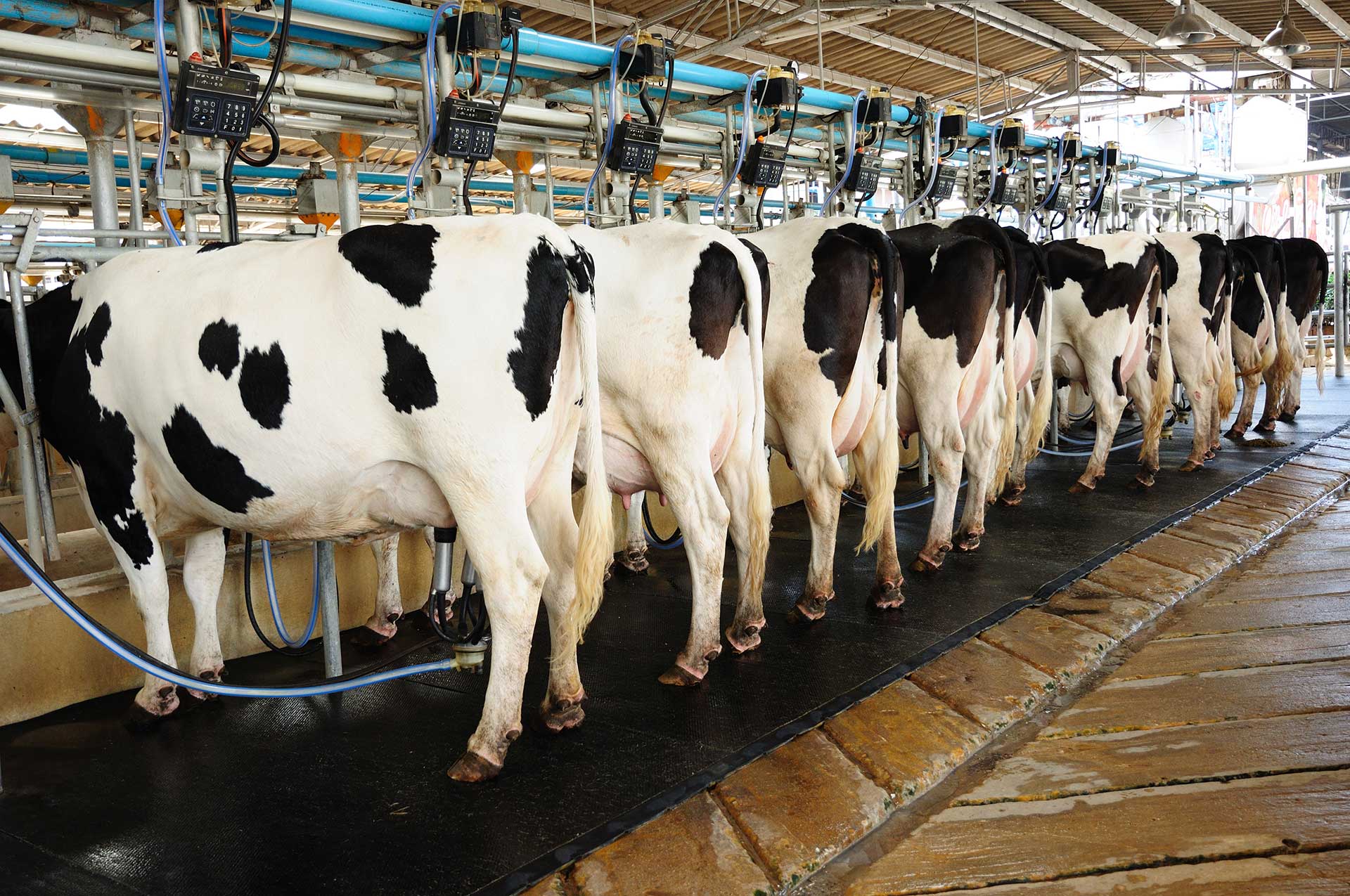Raw Milk Quality Testing
In the realm of agriculture and forestry testing, the integrity of raw milk is paramount. Raw milk quality testing ensures that dairy products meet stringent standards, which directly impact consumer health and safety. This service involves a comprehensive suite of tests designed to evaluate the chemical composition, physical properties, microbial content, and other critical parameters of raw milk.
The process begins with careful collection of samples from various sources within farms or dairies. These samples are then transported under controlled conditions to our laboratory for analysis. Our team uses advanced equipment like flow cytometers, gas chromatographs, and mass spectrometers to perform tests according to international standards such as ISO 16140-3 and EN 12987.
One of the key aspects is assessing coliform bacteria levels using methods aligned with ISO 16140-3. We also analyze somatic cell counts, which are indicators of mastitis in cows. The presence of excessive somatic cells can affect milk quality and should be controlled to maintain high standards.
Furthermore, we examine the fat content and protein levels using near-infrared spectroscopy (NIRS) techniques. These parameters are crucial for determining the nutritional value of raw milk and ensuring that it meets legal thresholds set by regulatory bodies like the Codex Alimentarius Commission.
The testing process also includes evaluating the acidity level, which can indicate spoilage or contamination issues. Additionally, we check for the presence of antibiotics or other prohibited substances through sensitive chromatographic analyses.
Our laboratory adheres to strict quality assurance protocols, ensuring reliable and accurate results. The findings are meticulously documented and reported in a clear format that includes detailed descriptions of methods used, data analysis techniques, and interpretation guidelines based on international standards.
The importance of raw milk quality testing cannot be overstated. It helps dairy producers maintain their reputation and comply with local and global regulations. For instance, countries like the United States require specific parameters to ensure raw milk is safe for human consumption. By providing consistent and high-quality results, we contribute significantly to public health.
Our team of experts works closely with stakeholders in the industry to provide actionable insights from our testing services. This collaboration ensures that dairy products not only meet but exceed regulatory requirements, thereby enhancing consumer trust and satisfaction.
International Acceptance and Recognition
The raw milk quality testing service is widely recognized across various countries for its rigorous approach and adherence to international standards. Many nations rely on similar methodologies when assessing the purity and safety of dairy products, emphasizing the importance of this service.
The European Union mandates stringent tests for raw milk quality, aligning closely with EN 12987 and ISO 16140-3. These standards ensure that all producers meet high hygiene levels, which are vital for maintaining public health.
In the United States, the Food Safety Modernization Act (FSMA) places significant emphasis on preventing contamination in raw milk before it reaches consumers. This act requires dairy processors to implement Hazard Analysis and Critical Control Points (HACCP), where our testing plays a crucial role.
Canada follows similar guidelines set by Health Canada, focusing on the presence of pathogens like Listeria monocytogenes and E. coli, which are detected using advanced molecular techniques.
Australia also has stringent requirements for raw milk quality testing, following guidelines from the Australian Dairy Industry Council (ADIC). These include regular monitoring of somatic cell counts to ensure cow health and product quality.
Our laboratory’s expertise in these areas ensures that our clients are well-prepared to meet international standards. By offering reliable and accurate test results, we help them stay compliant with global regulatory frameworks.
Environmental and Sustainability Contributions
Raw milk quality testing also has significant environmental implications. Ensuring the purity of raw milk helps reduce waste in dairy processing plants by minimizing the need for corrective actions or recalls due to contamination issues. This, in turn, supports sustainable practices within the industry.
The accurate detection and reporting of pathogens prevent unnecessary slaughter of animals, promoting animal welfare. Moreover, maintaining high standards of hygiene reduces the risk of environmental pollution from improperly handled dairy products.
Our service contributes positively to sustainability efforts by fostering a culture of continuous improvement in raw milk quality. This approach not only enhances product safety but also supports long-term economic viability for dairy producers. By adhering strictly to international standards, we ensure that our testing methods are both reliable and environmentally conscious.
Use Cases and Application Examples
Dairy Farms: Regular testing helps farms identify issues early on, allowing them to take corrective actions promptly. This prevents potential losses due to spoiled milk or contamination.
Dairy Processors: By ensuring raw milk quality meets strict standards before processing, processors can reduce waste and enhance product consistency.
Regulatory Bodies: Our services provide essential data for regulatory bodies to enforce compliance with national and international laws. This supports the enforcement of safety measures for consumers.
Dairy Exporters: Meeting global export requirements is crucial for dairy exporters. Our testing ensures that products meet the stringent standards of importing countries, facilitating successful exports.
Research Institutions: Academic institutions often use our data to conduct research on improving milk quality and developing new techniques in dairy science.
Dairy Cooperatives: Co-operatives benefit from consistent raw milk quality testing as it helps maintain the collective reputation of their products, enhancing consumer trust.
These examples illustrate how our raw milk quality testing service is integral to various stakeholders within the agricultural and forestry sectors. It supports a wide range of applications aimed at ensuring product safety, compliance with regulations, and sustainable practices.





